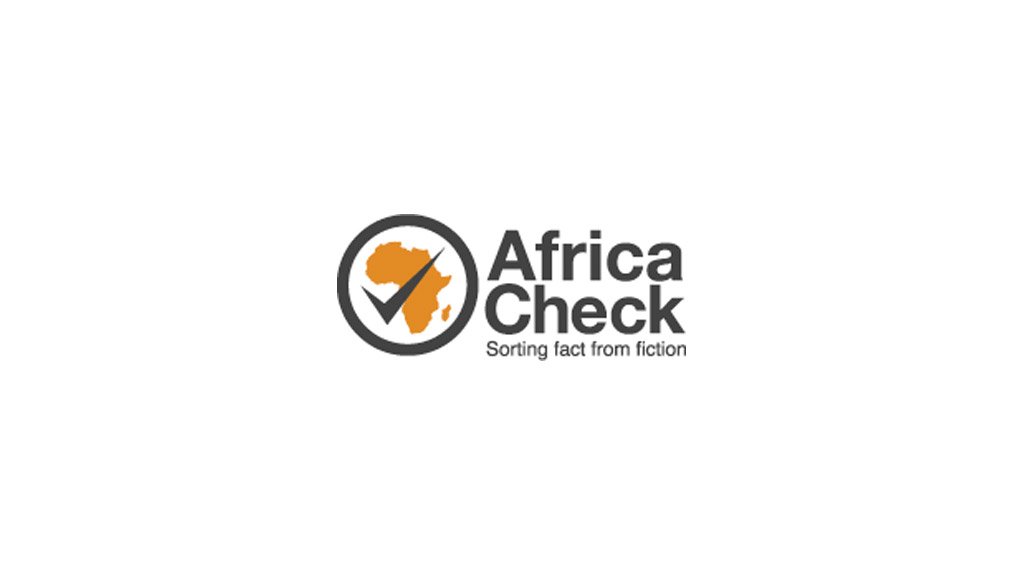Speaking on Radio 702, member of the mayoral committee for environment and infrastructure services in Johannesburg told listeners that “about 40% of the water that is used in Joburg is used on irrigating gardens”.
South Africa’s biggest city has to reduce water use by 15% due to the country’s ongoing drought. Anthony Still said to achieve this, residents would have to change their water use patterns.
“If you look at where we are going to have to get this 15% savings in total water use…” Still told listeners, “it’s from garden irrigation that we got to get it.”
While South Africa’s water-stressed position remains evident, proper solutions need to be built on facts. Two of our readers challenged us to #AfricaCheckIt, so we went looking for the source of the 40% figure.
Different versions of the claim
To start off, there are different versions of this claim. While Still implied that 40% of total water use in Johannesburg is for gardening purposes – as tweeted by Johannesburg Water and the City of Joburg – he said in a later media release that “more than 40% of potable water in Gauteng is used for gardening purposes”.
Still’s spokesman Anda Mbikwana referred us to Johannesburg Water where executive manager for marketing and stakeholder relations, Hilgard Matthews, told us that the “40% speaks to households” only. This is how Johannesburg Water phrased it in some tweets.
Households, businesses and industrial customers buy almost two-thirds of the water Rand Water supplies to Johannesburg Water, Matthews explained. (Note: The utility’s latest available annual report shows that it received no income for 35.8% of its water in the 2014/15 financial year. This is called “non-revenue” water and included physical losses at 16% of the total water supplied to Johannesburg Water.)
However, the utility does not report data for household, business or industrial customers separately. To provide such a breakdown, the utility would “need to look at the tariff codes to start splitting our billed volume into these categories and this will take some time”, Matthews said. (Note: We will update this report when they do.)
Because of this, it is impossible to say exactly how much of the city’s water goes to residential houses or how much is used for gardening.
So how did this claim come about?
Water use studied in Cape Town
Matthews directed Africa Check to a 2005 study, in which households were asked about their perceived water use, as the source of this statistic.
Carried out by a consulting engineering firm, 149 households in the City of Cape Town were surveyed either via the internet (32) or questionnaires handed out (117) in the suburbs of Mitchells Plain, Philippi, Athlone and Durbanville.
The study found that, on average, garden water use was “the most significant use overall” for respondents surveyed via the internet, who were “likely to be the higher income users”. It accounted for 37.6% of the total water these respondents estimated they used.
The study did not provide an estimate for the percentage of water used for gardening by people who received questionnaires by hand. These people were “assumed to be low-income users” by the researchers. It did note, however, that only 15% of households surveyed via hand-out questionnaires reported using water for gardens. In these cases the volume reported was minimal, at 100 litres.
No accurate water use studies available
When asked how the findings of a Cape Town study informed water use in Johannesburg, Matthews told us that water use patterns “remain the same” given similar demographics in the two cities. He told us that the high consumption reflected a lack of “financial appreciation for water” by consumers.
However, one of the authors of the 2005 study, Professor Heinz Jacobs, told Africa Check that while the claim “sounds quite reasonable”, he thought garden water use in Johannesburg would be lower than in Cape Town “due to the summer rainfall in Gauteng”.
Civil engineer and adjunct professor at the University of the Witwatersrand’s school of governance, Mike Muller, told Africa Check that while “the claim would seem reasonable” there is no data to support it.
Jacobs said that data of this nature has typically been mined from monthly water consumption records from municipal consumer meters, or consumer surveys. But these “are notoriously inaccurate”, he said.
More accurate methods to determine the different purposes a household uses water for are costly and therefore studies of this kind have not yet been conducted in South Africa, Jacobs told us.
Conclusion: Claim that ‘about 40%’ of Joburg’s water is used to irrigate gardens unproven
Johannesburg’s mayoral committee member for environment and infrastructure services, Anthony Still, claimed that about 40% of water used in the city is for irrigating gardens.
Johannesburg Water said that the claim actually referred to household water use. The statistic appears to have originated from a 2005 study which surveyed 32 high-income users in Cape Town.
Experts told Africa Check that while this figure may seem reasonable, it remains unproven. Expensive studies would need to be carried out to verify it.
Researched by Gopolang Makou, Africa Check, a non-partisan organisation which promotes accuracy in public debate and the media. Twitter @AfricaCheck and www.africacheck.org
EMAIL THIS ARTICLE SAVE THIS ARTICLE
To subscribe email subscriptions@creamermedia.co.za or click here
To advertise email advertising@creamermedia.co.za or click here











